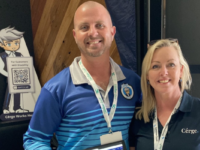A study by the Government’s disability employment hub, JobAccess, has determined that businesses can save up to $40 for every dollar invested in their workplace to support staff with disabilities and that disability-inclusive businesses are able to grow profits more than four times faster than their peers.
The compelling case for disability employment in Australia – the unrivalled benefits of an underutilised labour market report also found that employees with disability stay on the job longer on average than those without disability. In addition, people with disability are found to be safer in the workplace and have 34 per cent fewer accidents than other employees.
JobAccess General Manager Daniel Valiente-Riedl commented on the report saying, “Despite a strong business case, there is an employment bias against people with disability. Managers and employers are often concerned that productivity benefits might not be enough to justify costs to the business. But Australian and global research tell a completely different story.”
Valiente-Riedl added, “Discrimination remains very real. Some employers aren’t hiring people with disability because of attitudes and stereotypes that are simply incorrect.”
Australia’s disability employment gap has been over 30 for the past 10 years, lagging behind many OECD economies. The report pointed out that employing people with disability would add over $50 billion to the GDP by 2050, moving the country up into the top eight OECD countries for the employment of people with disability.
The tide is shifting as of late with the unemployment rates and decline in skilled migrant labour, as businesses turn to untapped sections of the labour market, including people with disability, to bridge the skills gap.
“This is not surprising given the positive impact disability engagement has on business growth and profitability,” said Valiente-Riedl. “In today’s tight labour market, there is a competitive advantage in hiring people with disability. It also positively impacts workplace culture with diversity and inclusivity and builds a workforce that represents the diversity of communities in which businesses operate.”
The report also looked at workplace adjustments that can increase productivity, accessibility and inclusion in a workplace. Awareness of these workplace adjustments is low both among employers and people with disability due to the prevalent myth that workplace adjustments are difficult to organise and expensive.
“Our internal research shows that half of the modifications cost less than $1,000 and that many adjustments can be made at no cost at all, like providing flexible work hours or locations,” Valiente-Riedl said. “They are a powerful tool to build inclusive and accessible workplaces. Not all people with disability require adjustments to do their jobs, and in most cases, implementing such adjustments are often low-cost or incur no cost.”
Businesses can also seek financial assistance to implement workplace adjustments to support employees with disability through JobAccess and the Australian Government’s Employment Assistance Fund (EAF).
JobAccess’ employer engagement program – National Disability Recruitment Coordinator (NDRC) – has partnered with employers across Australia to improve their inclusiveness through free, tailored 12-month partnerships. Since 2010, the NDRC has worked with over 380 organisations, including public, private and not-for-profit entities.
“Instead of being guided by negative attitudes and perceptions, employers need to start seeing the opportunities that can come by employing people with disability. Increasing disability confidence and embedding inclusive employment practices is the starting point to build strong teams,” concluded Valiente-Riedl.















